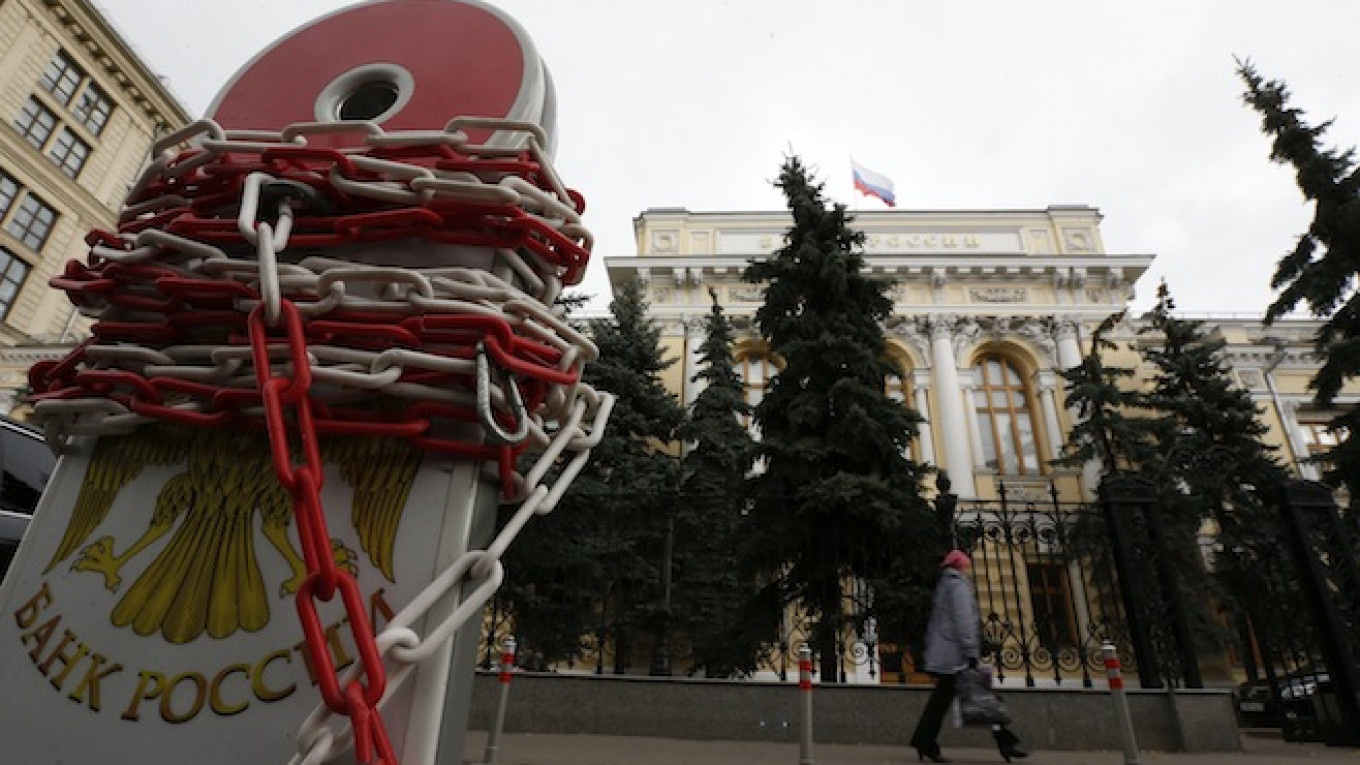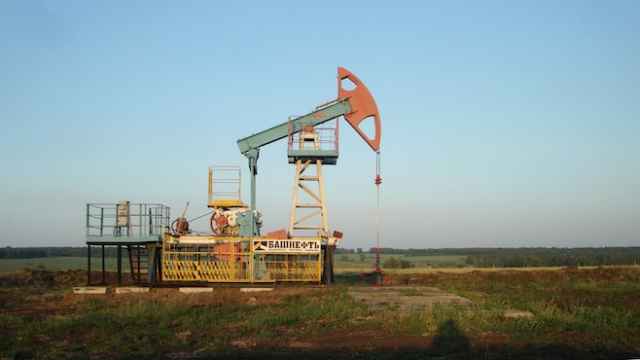Russia's central bank will not introduce restrictions on cross-border capital and currency movements even under its worst-case scenario where oil falls to $60 per barrel, Governor Elvira Nabiullina said on Thursday.
"There will not be any restrictions, not even in the 'stress scenario'," Nabiullina told journalists on the sidelines of the VTB Capital Russia Calling investment forum.
The central bank said on Wednesday it was working on a "stress scenario" for the monetary policy outlook, in addition to its existing three scenarios, based on a sharp fall in the price of oil, Russia's chief export, to $60 a barrel.
The bank's base scenario for 2015-2017 assumes an oil price of over $100 per barrel of Urals blend, which trades at a slight premium over the benchmark Brent crude. The bank's current most pessimistic scenario sees the oil price falling to $86.5 per barrel by 2017.
On Thursday, Urals stood at around $93 per barrel.
"We are only now developing this [stress] scenario, but we do not consider the possibility of introducing such restrictions [capital controls]," Nabiullina said.
"In our view, they are inefficient and our experience has shown that they cannot be effective."
Russia introduced capital account liberalization only in 2006, after years of trying to repair the financial damage of the post-Soviet era.
"When we are talking about a stress scenario, we want to understand where there will be bottlenecks, systemic threats, problems and how we should prepare our monetary policy for them," she added.
She said she sees the probability of the $60-per-barrel scenario as "very low".
Nabiullina added that the Central Bank will introduce seven-day and 28-day foreign currency repo auctions within a few weeks.
She told a VTB Capital conference that the new facility would help Russian companies and banks deal with problems caused by the closure of external markets. The bank recently introduced an overnight dollar-ruble swap facility as a means of addressing the heavy demand for dollars.
Nabiullina added that the Central Bank will not introduce restrictions on cross-border capital and currency movements in its worst-case scenario that envisages oil prices falling to $60 per barrel.
"There will not be any restrictions, not even in the 'stress scenario'," Nabiullina told journalists on the sidelines of the VTB Capital Russia Calling investment forum.
On Wednesday, the central bank said it was working on a 'stress scenario', in addition to its existing three scenarios for monetary policy outlook, that envisages a sharp fall in crude prices, Russia's chief exports, to $60 a barrel.
A Message from The Moscow Times:
Dear readers,
We are facing unprecedented challenges. Russia's Prosecutor General's Office has designated The Moscow Times as an "undesirable" organization, criminalizing our work and putting our staff at risk of prosecution. This follows our earlier unjust labeling as a "foreign agent."
These actions are direct attempts to silence independent journalism in Russia. The authorities claim our work "discredits the decisions of the Russian leadership." We see things differently: we strive to provide accurate, unbiased reporting on Russia.
We, the journalists of The Moscow Times, refuse to be silenced. But to continue our work, we need your help.
Your support, no matter how small, makes a world of difference. If you can, please support us monthly starting from just $2. It's quick to set up, and every contribution makes a significant impact.
By supporting The Moscow Times, you're defending open, independent journalism in the face of repression. Thank you for standing with us.
Remind me later.






